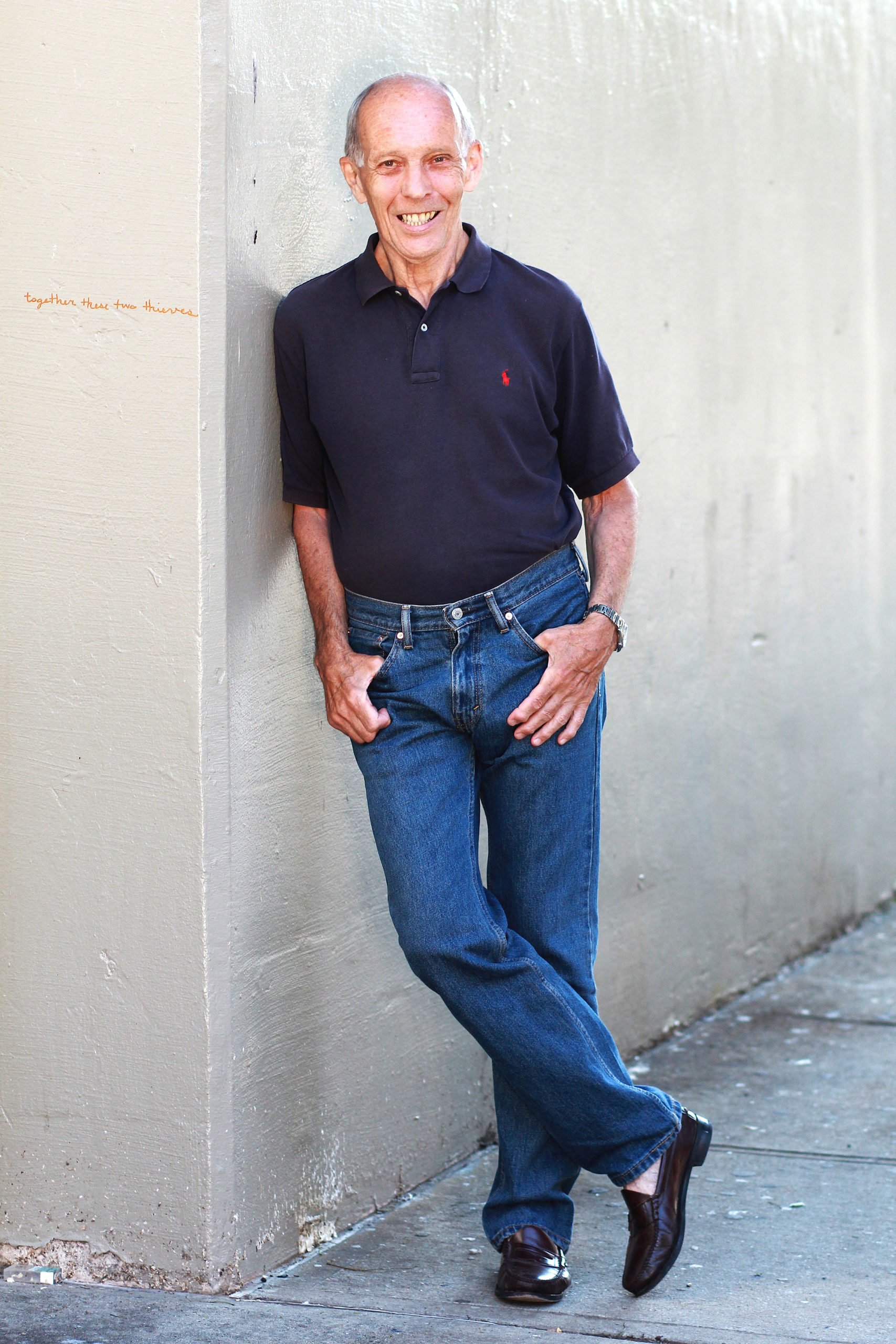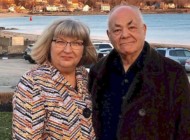
By Madelia Hickman Ring
NEW YORK CITY — Frank Joseph Miele passed away on December 29, 2022, at a nursing home on Amsterdam Avenue in Manhattan, from complications suffered from a fall in September. He was 83 years old.
Frank was born at Beth Israel Hospital in Newark, N.J., on May 1, 1939, the son of Joseph Miele and Rose Tulimiero; his family lived in Newark until he was eight, then moved to Belleville, N.J. Some of his earliest memories were of growing up during World War II, including listening to war reports on the radio.
Frank attended Belleville High School in Belleville, N.J., graduating in 1957 and working at the US Post Office in the summer and on Christmas holidays. He went to college at Seton Hall University in South Orange, N.J.; in 1961, he graduated as the valedictorian of Seton Hall’s business school with a magna cum laude Bachelor of Science degree with a major in accounting and minors in English, history and philosophy. He was president of both Alpha Kappa Psi and the accounting club and parliamentarian of the student council. He received a full scholarship to Notre Dame Law School, where he was on the editorial board of the law review (The Notre Dame Lawyer) and which he graduated from in 1964, with a LLB degree. Though he grew up a Presbyterian, he converted to Catholicism while at Notre Dame.
On August 16, 1964, he and Karen Ann Coronato, a nursing student he had met during his junior year at Seton Hall, eloped to Elkhart, Md. The couple lived in Bloomfield, N.J., South Orange and Short Hills. In 1970, the family purchased an 1809 farmhouse in Whitehouse, N.J., where they had horses and chickens and raised Suffolk sheep, which they showed at 4-H fairs.
From 1964 to 1987, Frank worked as an attorney specializing in corporate law, litigation and banking. With a few exceptions, his law career was spent largely with the Morristown, N.J., law firm of Riker, Danzig, Scherer, Hyland & Perretti, where he was, variously, senior partner, managing partner and hiring partner.
He served as the business and legal consultant for the Achilles Track Club and Achilles International.
A visit to the Whitney Museum of American Art’s 1968 exhibition, “111 Masterpieces from the Collection of Edgar William and Bernice Chrysler Garbisch” spurred Frank’s love of American folk art; his first acquisition was a pair of portraits by Ammi Phillips, from Hirschl & Adler. Frank and Karen began to fill their farmhouse with American antiques; his sons remember antiquing trips to New England. Frank and Karen divorced in 1983 but the two remained friends until her death in 2007. Sotheby’s sold the couple’s collection of folk art on January 28, 1984.
Frank had a brief relationship with Gloria Bremer, with whom he had a son, Alexander.
After Frank retired from the law firm, he joined Hirschl & Adler Folk, where he worked as a director from 1987 to 1990. In 1991, he founded and directed his own gallery of contemporary American folk art, the Frank J. Miele Gallery; which he would run until 2010.
Frank’s scholarship in the field of American folk art was extensive; between 1987 and 1991, he wrote several articles and book reviews that were published in The Magazine Antiques, The New England Antiques Journal, The Clarion, ELLE Décor and Art & Antiques, as well as for Hirschl & Adler. In 2012, he wrote the e-book, Humpty, Dumpty, A Child’s Conundrum; it was published in print in 2013; it was followed in 2014 by the e-book, It’s All Over Once You Quit. His New York City apartment was featured in Country Living Magazine and in a column in Architectural Digest; his office at the Morristown law firm was once selected by the New Jersey State Bar Association as the “most beautiful law office in New Jersey.”
Frank gave lectures on American folk art at the Minneapolis Art Institute, the Amon Carter Museum (Fort Worth, Texas), the M.H. De Young Museum (San Francisco); the Toledo Museum of Art, the Newark Museum, the Museum of American Folk Art in New York City, the Philbrook Museum of Art (Tulsa, Okla.); the Montclair Art Museum (Montclair, N.J.); the New Jersey State Museum (Trenton); the Abigail Adams Smith Museum (New York City), Fairfield University (Fairfield, Conn.) and the New York State Historical Association (Cooperstown, N.Y.).

Frank is remembered by his sons as being a vibrant, active sportsman, who played a number of different sports, including biking, hockey, golf, baseball, football, basketball, skiing, soccer, swimming, tennis, squash, handball, volleyball, foot basseting, lacrosse, softball, table tennis, bowling, weights, roller blading and paddle tennis. An avid runner, Frank had 28 marathons under his belt, beginning with the New York City marathon in 1976. He helped conceive the idea of a 12-mile road race to raise funds for the Midland School, a school for children with developmental disabilities in Branchburg, N.J.; the first Midland Run took place in 1978 and was continued until 2005.
Later in life, Frank performed as a supernumerary — or extra — with the Metropolitan Opera, American Ballet Theatre, Kirov Ballet and the Birmingham Royal Ballet. He enjoyed taking ballet classes at Ballet Academy East and Steps.
Frank was involved with several boards, including the New Jersey State Bar Association, the New Jersey State Museum, the Printmaking Council of New Jersey, the Peck School in Morristown, N.J., the Craftsman (Stickley) Museum in Parsippany, N.J., the Hotel des Artistes (New York City) and the American Folk Art Society.
“We knew him as a collector and a dealer,” said Burt Fendelman, who, with his wife Helaine, remembered going to Frank and Karen Miele’s farm in New Jersey. “He was a very nice guy and was into folk art, we got started when we bought a Nineteenth Century farmhouse, so we started looking for older things. He had some wonderful pieces at his farm, and we would see him often, at shows and auctions. We visited his shop; he was a friend.”
Woodbury, Conn., folk art dealer, David Schorsch, also shared memories of Miele with Antiques and The Arts Weekly. “I met them when Frank and his wife, Karen, were collecting and responded to an ad placed by my mother [Peggy Schorsch] in February 1977, when they bought a portrait we now know to have been painted by George Gassner. During the time they were together, they put together a nice collection and he was friendly with my father. He then teamed up with Stuart Feld in folk art and they founded Hirschl & Adler Folk. He started buying very aggressively and bought some wonderful things, both privately and publicly. He also handled some important things; I bought a few from him. He did a series of exhibitions, including one in conjunction with the Folk Art Museum. He had a very ambitious agenda, participated very aggressively and rode the crest of the wave of the folk art market. He left an imprint in the folk art world that should not be ignored.”
Miele is survived by his younger sister, Anita Myer of Westfield, N.J., and three sons: Bradford Miele of Kennebunk, Maine, Cabot Miele of Boca Vista, Fla., and Alexander Miele Bremer of Oakland, Calif; as well as four grandchildren: Madeline Miele, Charlottesville, Va., Eva Miele, Willimantic, Conn., Hamilton Miele, Kennebunk, Maine, and Oliver Miele, Kennebunk, Maine. Details of a celebration of Miele’s life are pending.
Donations can be made in Frank’s name to Free Arts NYC (https://freeartsnyc.org).




